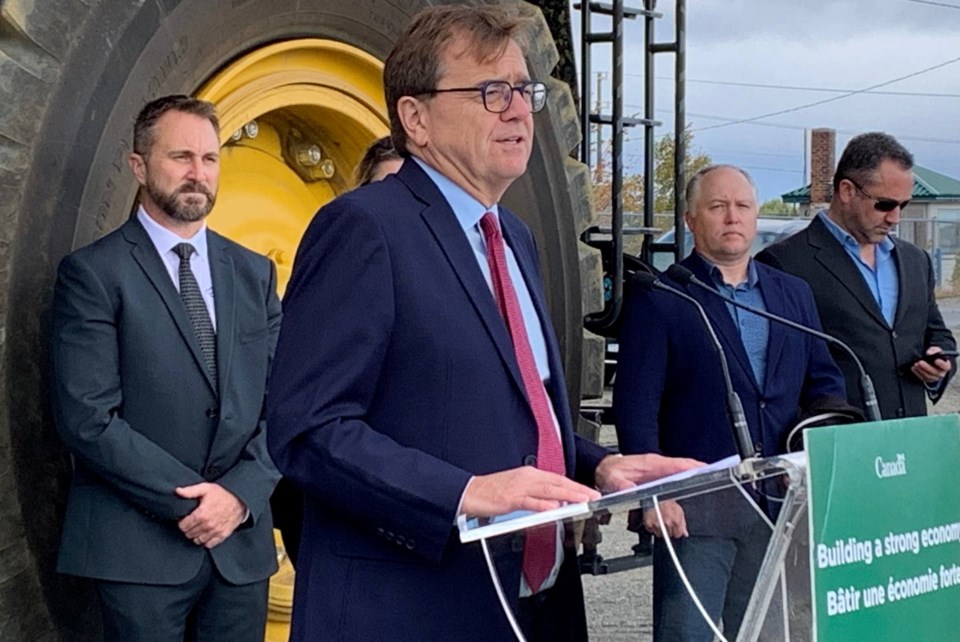Canada needs to speed up the pace of mining-related development if it wants to be a critical minerals leader on the global stage.
That was the message from federal Energy and Natural Resources Minister Jonathan Wilkinson during an Oct. 9 appearance in Sudbury.
Speaking at the 2024 Conference of Mining Regions and Cities, hosted by the Organisation for Economic Co-operation and Development (OECD), Wilkinson noted Canada's global ranking in the top five producing countries for 13 major minerals and metals, including palladium, gold, platinum and nickel.
That puts Canada in an enviable position as countries around the globe seek out reliable, sustainable sources of critical minerals in the transition to a “low-carbon future.”
It can mean thousands of jobs and economic growth, he noted. But the country must do it smartly and thoughtfully.
“It simply cannot take us as long as it has taken us, historically, to build new projects,” Wilkinson said.
“But we need to do this without cutting corners in terms of the environment and without cutting corners in terms of the rights and the interests of Indigenous peoples.”
Following his speech, Wilkinson made an appearance at Vale’s Stobie Mine where he announced $11 million in funding for Sudbury-area mining projects.
Two days previously, he was in Thunder Bay to announce nearly $14 million for four mining projects in that region.
The funding is earmarked for roads and powerline infrastructure for four lithium mines and a copper mine proposed for northwestern Ontario.
Currently, Frontier Lithium, Green Technology Metals, Rock Tech Lithium and Avalon Advanced Materials all have mine projects in advanced stages of development, each tabling proposals for lithium processing plants.
Leadership at those companies have been vocal about their need for government funding support to help bring those projects to fruition
When Wilkinson was asked whether the government would help fund the construction of those refineries, he suggested the feds were supportive.
He did not elaborate, when asked, whether Ottawa would be open to funding four individual refineries, or if it would prefer to focus on one regional processing hub.
"We certainly are looking at providing financial support for refineries and other processing-related facilities,” Wilkinson said.
“The initial support would actually come through the new investment tax credits, where the federal government actually pays a portion of the capital costs associated with machinery in those kinds of complexes.
“So we've made that commitment as a broad statement, but we also are looking at whether there are additional things that need to be done.”
The minister said he was aware of a few projects in the region with applications in to the Strategic Investment Fund, that they were "progressing through the system,” and “hopefully there will be decisions soon.”
Wilkinson reiterated his previously stated comment that the government is focused on creating end-to-end critical minerals value chains, from mineral exploration to extraction to processing.
“Right now, many of the critical minerals that we will need for the energy transition happen in China or happen on the basis of Chinese-controlled technology,” he said.
"We need to actually be able to process those things here in Canada, and so we are very focused on ensuring that we are working to develop those value chains, and folks who want to be in that business certainly have an open door to come and talk to me.”
